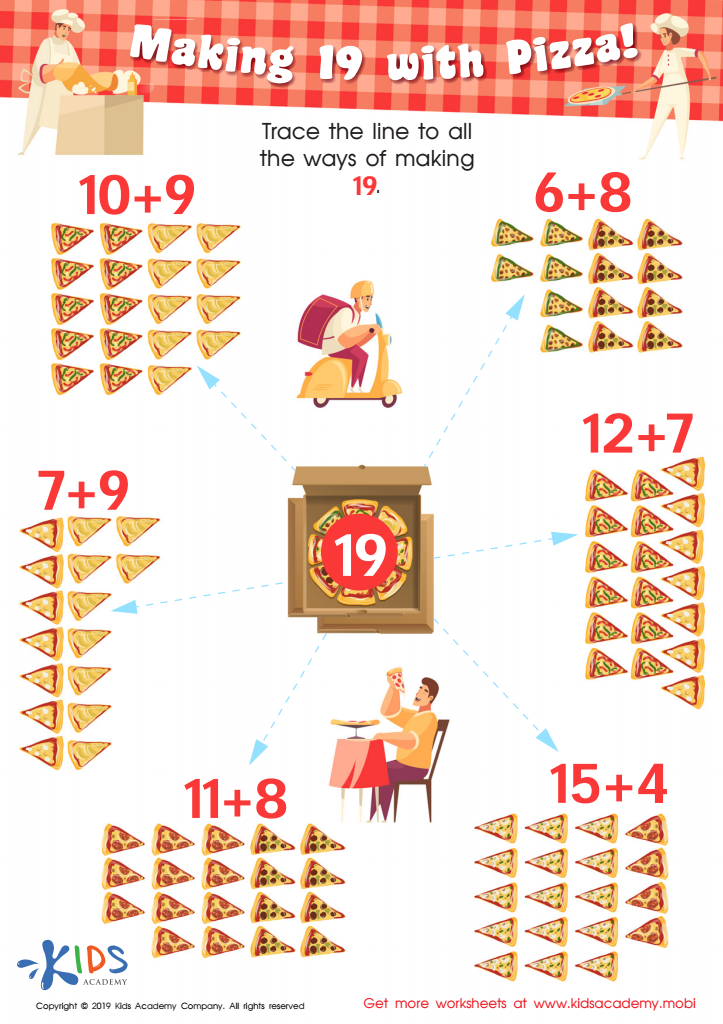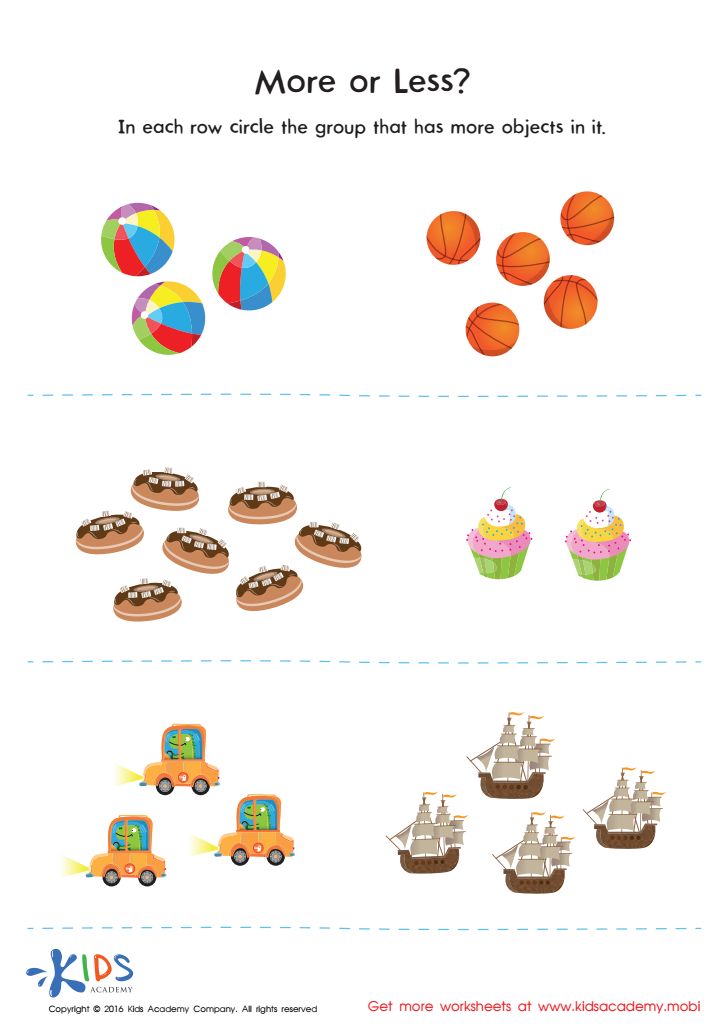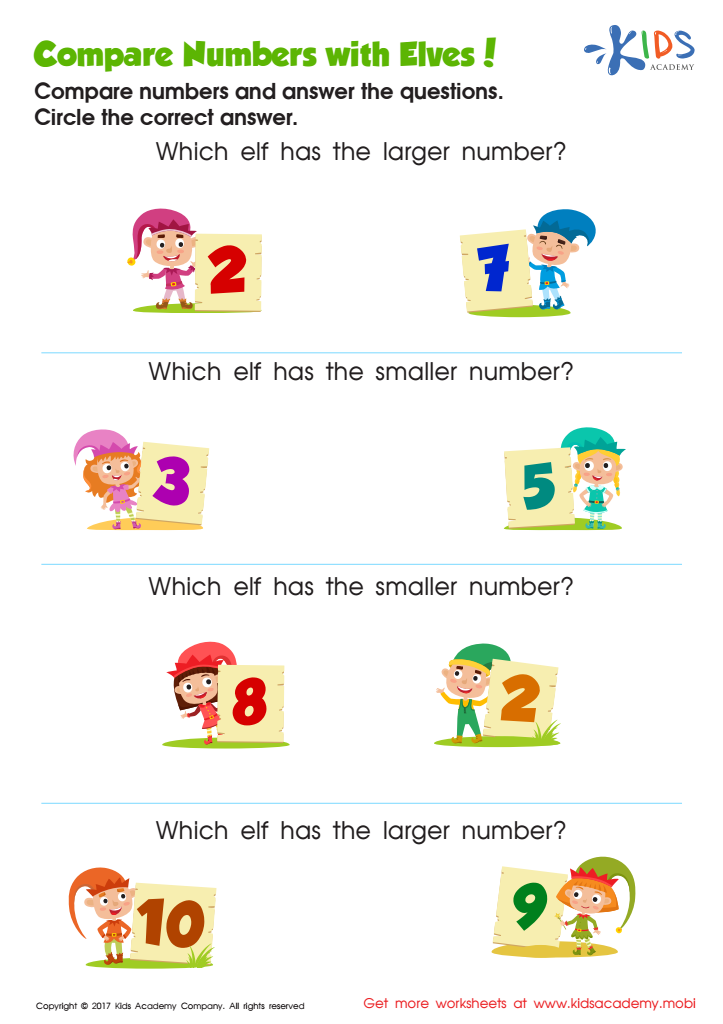Understanding Quantities Normal Worksheets for Ages 6-7
3 filtered results
-
From - To
"Understanding Quantities Normal Worksheets for Ages 6-7" are designed to enhance your child's mathematical skills, making learning both fun and effective. These expertly crafted worksheets provide a variety of exercises focused on understanding and working with quantities, helping children to grasp essential math concepts early on. Perfect for ages 6-7, these printables foster growth in number sense, addition, subtraction, and more. Through engaging activities, kids gain the confidence and create a solid foundation needed for future math success. Ideal for use at home or in the classroom, these worksheets are your key to nurturing a budding mathematician.


Making 19 with Pizza! Worksheet




Comparing Numbers Worksheet for Kindergarten
Parents and teachers must emphasize understanding quantities for children aged 6-7 because it forms the cornerstone of their mathematical thinking and cognitive development. This period is crucial as children make significant transitions from concrete to abstract thinking in mathematics. By grasping quantities, children develop essential skills such as number sense, which is the ability to understand, relate, and connect numbers. This foundation is pivotal for future topics in mathematics, including arithmetic, problem-solving, and logical reasoning.
Moreover, a solid understanding of quantities leads to better performance not just academically, but in everyday life. Children learn to make sense of their environment, for instance, comprehending more/less, understanding distances, or managing small transactions. Effective quantity comprehension also overlaps with other cognitive skills like memory, attention, and executive functions, making children more proficient learners overall.
Neglecting this important phase can lead to gaps in knowledge that may years to fill, causing frustration and aversion to math. Therefore, by creating rich, engaging learning experiences that reinforce quantity understanding through play, real-life examples, and hands-on activities, parents and teachers empower children with lifelong skills. This proactive approach ensures smooth academic progression and nurtures a positive attitude towards mathematics and learning.
 Assign to My Students
Assign to My Students



















